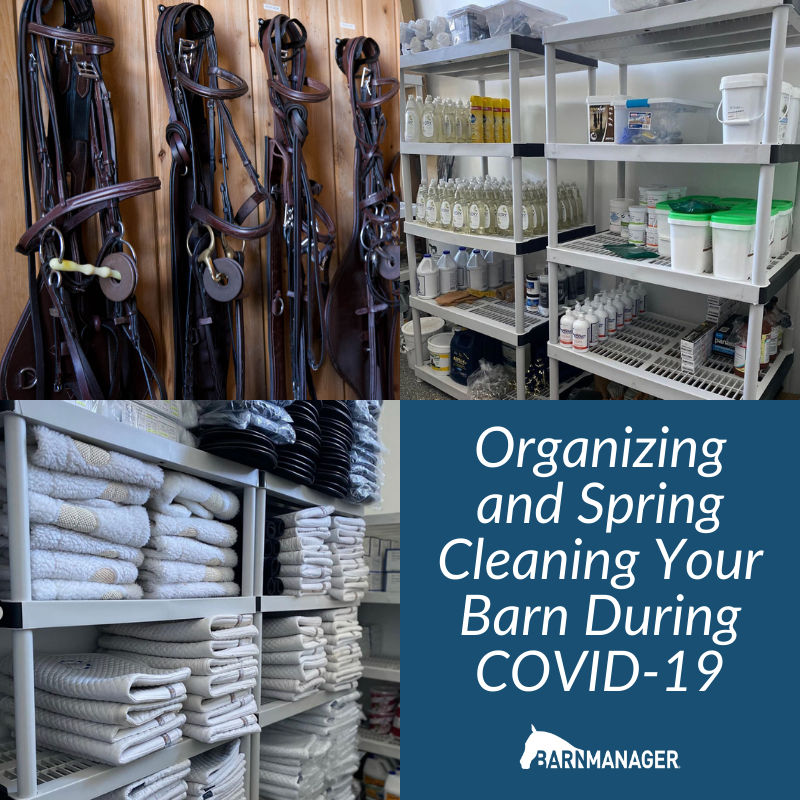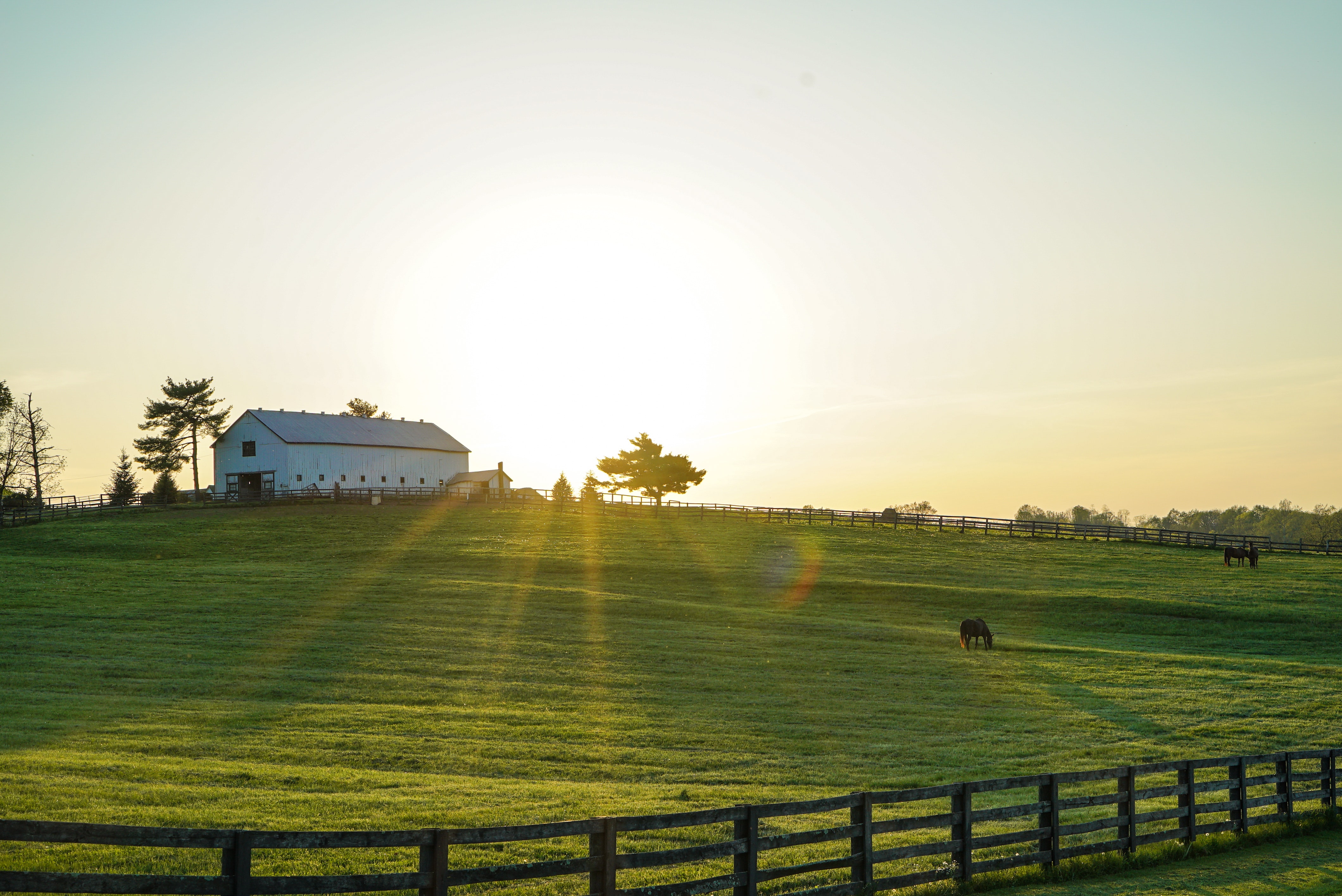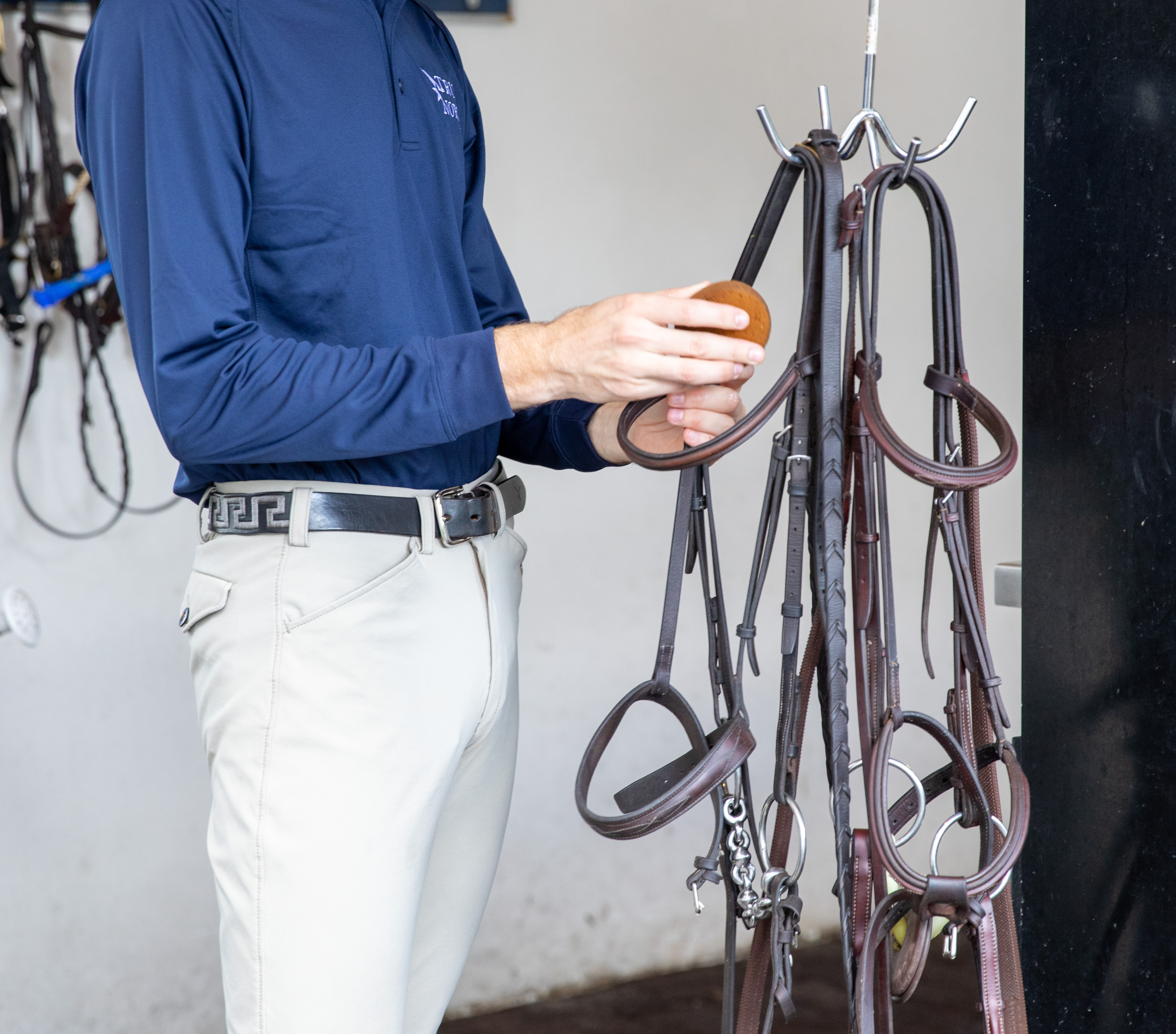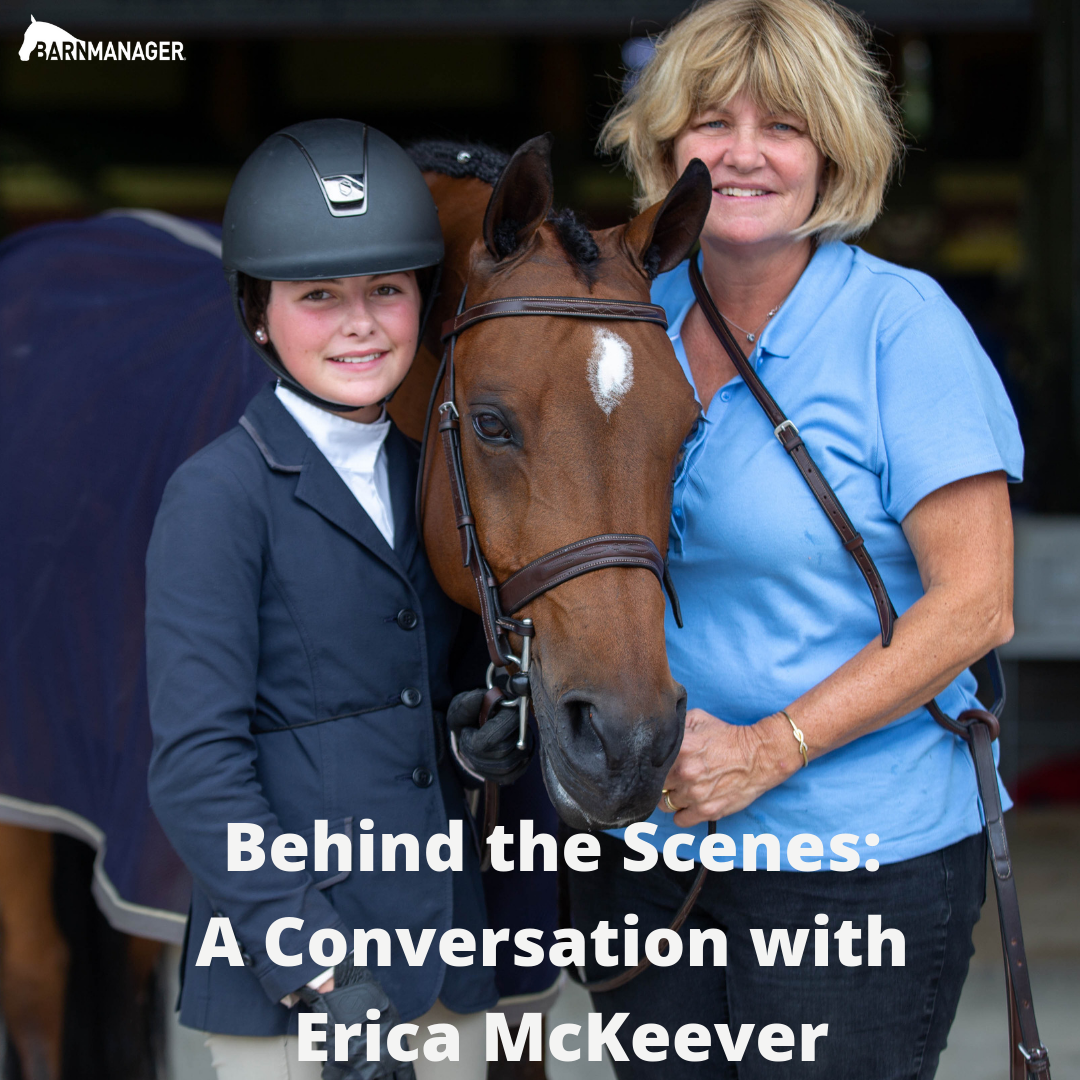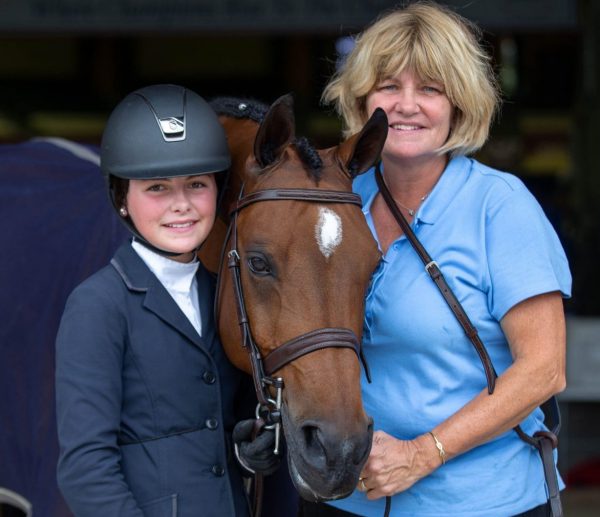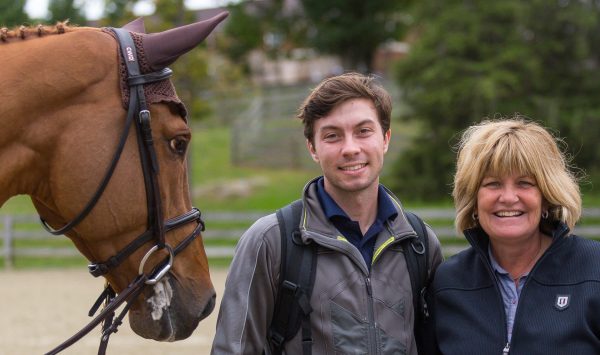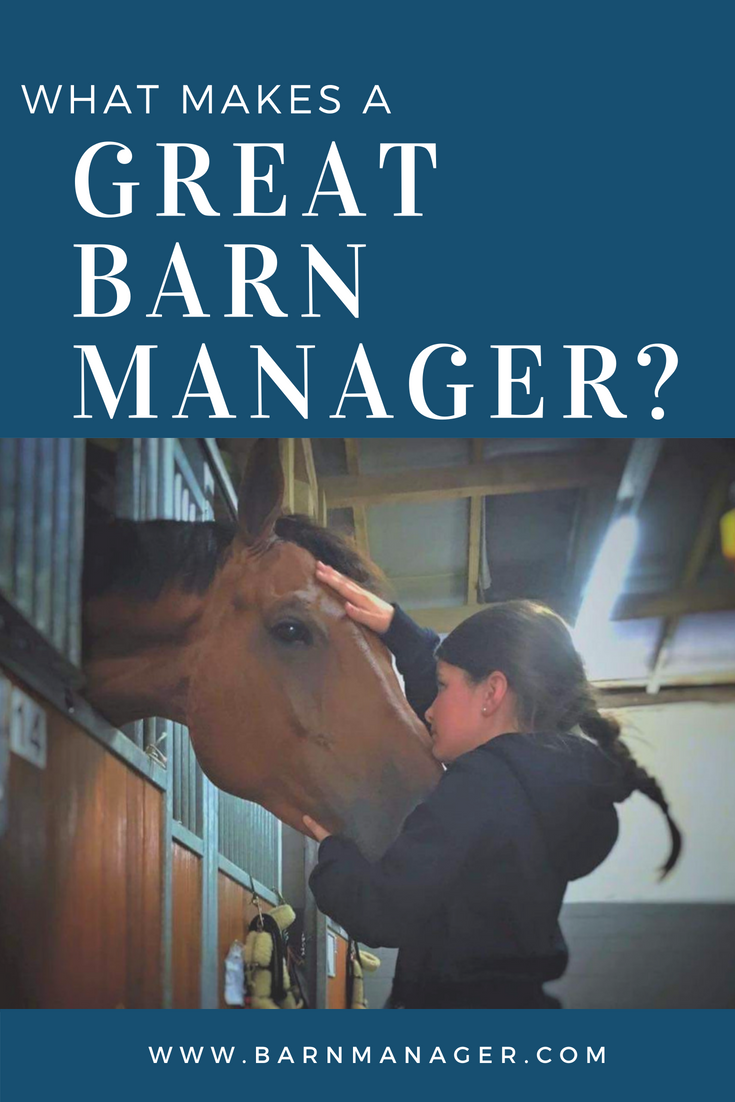10 Masterclass Innovation Series Takeaways Worth Knowing!
For the past several months, our BarnManager team and our Equine Tech Collab partners have wanted to bring to life an event, or a series of events, that would embody the Equine Tech Collab’s mission of supporting the education of equestrians in order to equip them with the knowledge and tools needed for best practices in horse care, welfare, and management.
 On Tuesday, March 19, that idea came to fruition in the form of the Equine Tech Collab’s Masterclass Innovation Series: A Mindful Approach to Horse & Rider!
On Tuesday, March 19, that idea came to fruition in the form of the Equine Tech Collab’s Masterclass Innovation Series: A Mindful Approach to Horse & Rider!
The two-part panel discussion event included conversations on “The Soundness Spectrum: Maintaining Horses’ Soundness Through Proactive Management” and “In Good Company: Top Riders Discuss the Skills and Practices That Help Them with Mental and Emotional Challenges,” with panelists and moderators including:
- two-time Olympic show jumper, Daniel Bluman
- FEI groom for Millar Brooke Farm, Danny Ingratta
- Tonya Johnston, MA, a Mental Skills Coach, author, and A-circuit competitor who specializes in working with equestrian athletes
- the U.S. Dressage Olympic team bronze medalist currently ranked fifth in the world, Kasey Perry-Glass
- Dr. Tim Ober, the official veterinarian of the US Equestrian show jumping team
- Dr. Sheila Schils, an innovator in the field of equine rehabilitation and injury prevention
- 2018 World Equestrian Games (WEG) show jumping team gold medalist Adrienne Sternlicht
- Jennifer Wood, founder of Jennifer Wood Media and Equestrian Businesswomen and co-founder of Jump Media
We learned a ton from all of them, but we have narrowed it down to 10 takeaways from the evening to share with you! (For more, you can watch the full evening on demand on USEF Network here!)
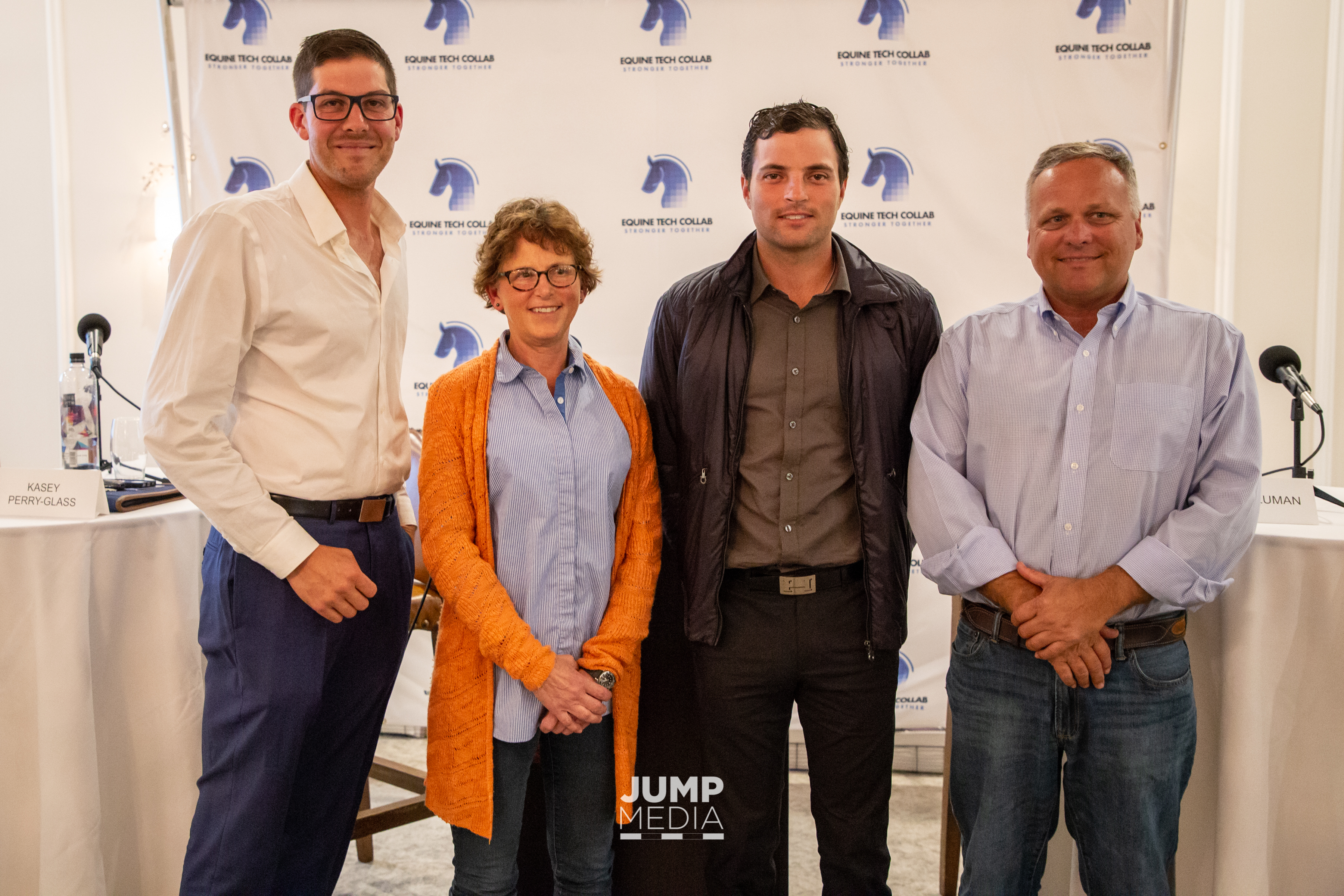
1. Keeping your horses sound starts with spending time with them.
Two-time Olympian Daniel Bluman shared: “Nowadays the schedule for the horse and the rider and for the whole team is pretty busy. There’s a lot of traveling; there’s a lot to do. I think it’s very important that you make yourself a good schedule where you get to spend enough time with the horses. I think that’s the base of our sport, the base of our industry, and our passion. I think for every horseman, grooms, veterinarians, or the rest of the team, it’s all about spending many hours with the horses so that you have as much information as you can.”
Danny Ingratta, the head groom for the team at Millar Brooke Farm (home of 10-time Canadian Olympian Ian Millar, Olympian Amy Millar, Jonathon Millar, and Kelly Soleau-Millar), added: “For me it’s daily; every day I’m looking at the horse. I’m feeling the horse—everything from acupuncture points to if their legs are a little bit bigger. I like to touch the horse and see what it tells me. You run your hands down it’s legs. Are there bumps? Is their scurf on its legs?”
Daniel also noted that the more time that you spend with your horses, the more likely you are to notice if something is off or unusual: “It makes it easier for me to notice if there are differences. If I normally do circles to the left or to the right and the horse is not reacting or doing what they normally would do, and I know them fairly well, then perhaps it’s important to call the vet and check that there’s not something that’s bothering them.”
2. Educating yourself is important for both you and your horse.
Educating yourself is another vital step to maximizing your horse’s well-being and soundness. It also goes hand-in-hand with spending time with them – and your vets will appreciate it too!
“Familiarizing yourself with anatomy enough to run your hand down the legs and know where swelling is and that it’s different from one day to the next [is one of the first things you can do to improve soundness]. Most vets appreciate clients who have gone through the process to form an opinion in that manner. Focus on your own education; get what you can from each example.” – Dr. Tim Ober, the official veterinarian of the US Equestrian show jumping team
3. A good relationship with your vet can go a long way.
“I would say that a grand prix horse showing in an intense schedule down here [in Wellington] should be seen every two weeks. Then I would scale it down and say every two weeks to every six weeks. I think everybody is challenged to figure that out in their own program—what a good rhythm is. But if it’s more than six weeks, it’s difficult to get to know the horse or it takes a much longer time to get to know the horse. I think there’s a big advantage in developing that familiarity with your veterinarian.” – Tim
“I think a close relationship with your vet is really important. If your vet doesn’t know your horses well enough, he or she is prone to making mistakes.” – Daniel
4. Stress is not always a bad thing – at least if you’re a muscle.
While negative connotations generally come to mind when we hear the word “stress,” it can be a positive force, too. In fact, stress is needed for a muscle to grow and rebuild. Dr. Sheila Schils, an innovator in the field of equine rehabilitation and injury prevention and a professor in the pre-vet program at the University of Wisconsin for more than 20 years, explained:
“The only way that you’ll get a stronger muscle is to break down muscle fibers. Often what we see in our horses is they get done with a competition, and we feel their backs and immediately feel, ‘Oh they’re sore.’ In my world, as long as that soreness doesn’t become pathological, I’m in the back going, ‘Yay!’ Because now, next week that horse is going to become stronger.
“We don’t want to over-stress those muscles, but we have to look at this discomfort and pain in a different way. The way that we reduce this stress, so it ends up making a stronger muscle as an outcome rather than resulting in injury, is we use the muscle more.”
5. Just because you may feel like you need a day off following a horse show, it might not actually be what is best for your horse.
In order to move the muscles more and to help them grow and heal, Sheila explained that a day off from riding after a big effort is not really the best solution.
“Even though on Monday, when all of you need a day off, you think, ‘So does my horse.’ Wrong! The brain may need a day off, don’t get me wrong, but the muscle needs to keep on rolling. The worst thing after the muscle has been stressed is to let it sit in the stall and rest, because then it becomes inflamed. If I have my preference, you ride them, because you have such a better sense of when that horse becomes fatigued. You can sit on them and know how far to push them, rather than putting them in something that doesn’t have that idea of how far. If a horse has had a strenuous week, and then you put them on a treadmill, or especially a water treadmill, then you could be not giving them that appropriate recovery time.”
6. You’re not the only one with show ring anxiety; Olympic and World Championship athletes battle it too.
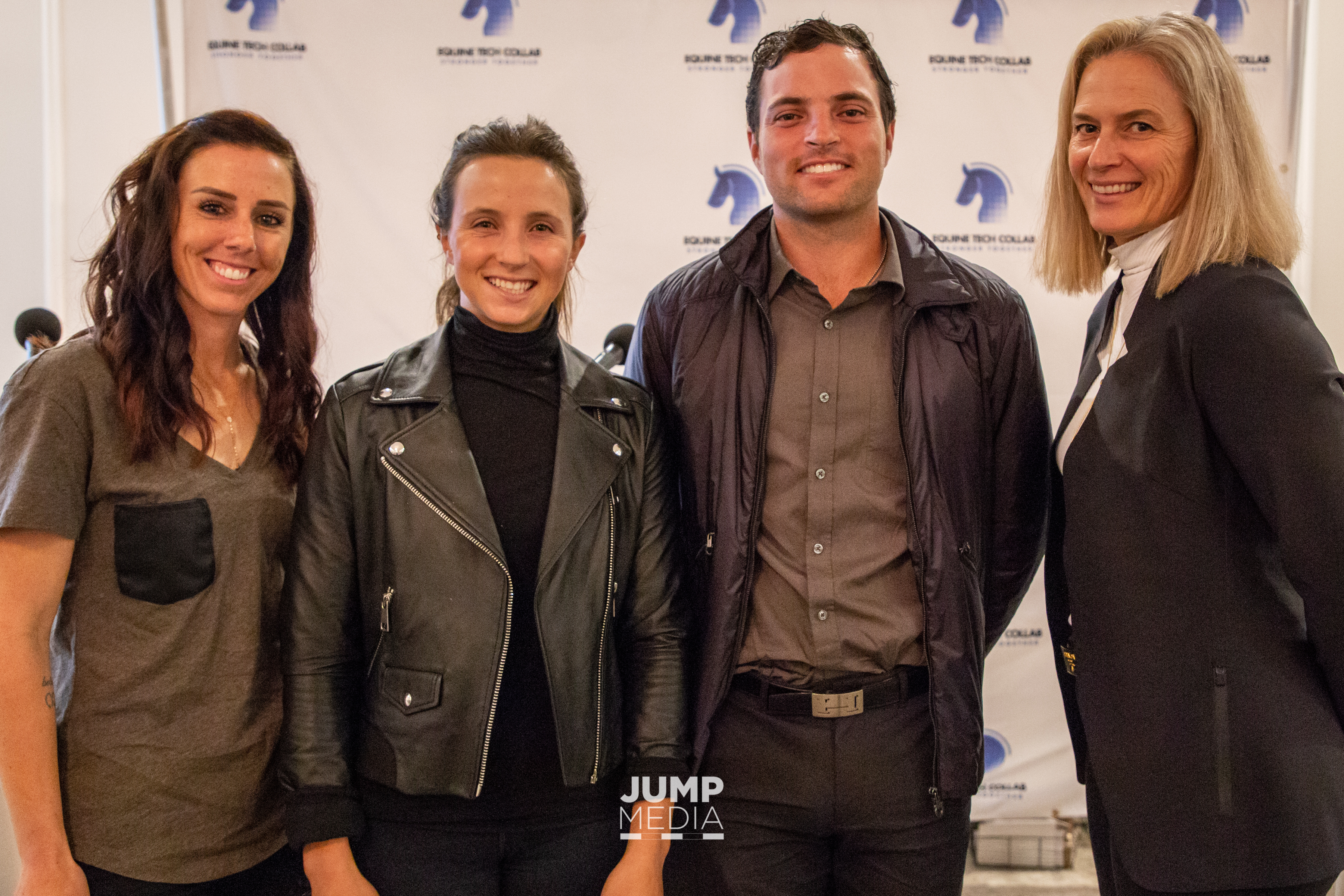
“Even these big events that you go to, I try to think of it as a very small thing. Because if it becomes too big in my head, it becomes overpowering. Then I can’t focus. Two hours before I start my preparation, I feel sick to my stomach. I’m not nervous; I’m just anxious. Once I start braiding and getting him tacked up and all of that, it goes away. Then after my warm-up I feel pretty secure. I trust my training; I trust my coach, and she sends me in having full confidence.” – Kasey Perry-Glass, the U.S. Dressage Olympic team bronze medalist currently ranked fifth in the world
7. There’s great value in routine.
In fact, Daniel says he thinks it’s the most important tools for any athlete, and Adrienne and Kasey agree! Here’s some of what they had to say about routines and the rituals they utilize themselves:
Daniel: “[Routine] keeps you going in moments when your mind shuts down because you’re just so tired. You have to train your brain to not think about what’s at stake, rather it’s just one more time that you’re going in the ring to do what you practiced. I try to spend a lot of time with the horses before big competitions because I know that that’s going to give me that peace that I like. Part of my routine is actually to ride my horse as close to the competition as possible, so that I already know I’m guaranteed that period of time of peace.”
2018 World Equestrian Games (WEG) show jumping team gold medalist Adrienne Sternlicht: “Before a big class, I have a distinct routine, which brings comfort to uncomfortable situations. I was so freaked out the first day at the [WEG]! I had no idea what to expect. I found comfort in being able to a) meditate and b) listen to books. There are certain chapters of certain books that I listen to that I really like. (She often listens to chapters titled “Fear” and “Desire” in the book Letting Go: The Pathway of Surrender by David R. Hawkins, M.D., Ph.D, as part of her pre-competition routine.)
Kasey: “I’m an overthinker. I think way too much about everything. I look at my husband all the time, and he doesn’t think about anything like ever! I just want to channel that. I’ve tried to simplify my life in any way that I can. The more organized that I can stay in my daily life and my routine, the better I am. My horse is on a very time-sensitive schedule at competitions. I plan everything out. By putting on his bridle, by putting on his saddle, braiding – because I braid myself, it helps me get in the zone.”
8. Daniel Bluman loves a good nap
Through trying different routines, Daniel found that a pre-competition nap is often quite beneficial for him. It’s all about what works best for you!
“Daniel over there, he sleeps often. I see him when he’s really nervous before a big class, where as I like to keep myself super busy.” – Adrienne
“I definitely love sleeping. That’s not a secret to anybody. The class may be going on, and I’m taking a nap before I get on the horse. That’s also something that has worked for me. If the first time I took a nap before competing I went horrible, I probably would have never napped again! But napping has consistently worked well for me. I’m an anxious person by nature, so I go over the plan too many times. Then at some point my brain shuts down, so a little nap is always fantastic to refresh. You just have to have somebody to wake you up in time!” – Daniel
“Sometimes focus comes in many forms…[Olympic dressage rider Adrienne Lyle] loves to sleep. We have to wake her up. So, it’s interesting how everyone can be so different.” – Kasey
9. At the end of the day, it’s important to remember why we all do this in the first place: the horses.
The next time that you’re feeling anxious going into the show ring or find yourself overthinking your last bad ride, try doing what Daniel does:
“I try to focus on the reasons why I do the sport. I didn’t start riding because I wanted to win a five-star grand prix anywhere in the world. I didn’t even know that five-star grand prix existed. I didn’t start riding because I wanted to be the most successful rider in the history of the sport; I really just started riding because I loved horses. In times when I’m really anxious or I feel my head is getting ahead of me, I just really try to remember that thankfully we work with horses and not with motorcycles or with cars. We work with actual animals that have this incredible power to give us that feeling of calm of peace.”
10. We truly are “stronger together.”
”Stronger Together” is the tagline of the Equine Tech Collab for a reason. We knew that together we could do far more to further our shared missions than we could ever do alone, and the first Masterclass Innovation Series was a testament to that. Not only did all of the Equine Tech Collab partners come together, but also the panelists all gave so generously of their time, knowledge, and expertise – something that we are so incredibly thankful for! By working together to share this knowledge and to share resources, we hope that the equestrian community as a whole can become even stronger together!
BarnManager is designed to be a part of your team, with the compatibility and credentials necessary to improve communication, simplify the management of horses, and get you out of the office, off the phone calls, and into the barn with the horses you care about! Click here to get a free demo and find out more!
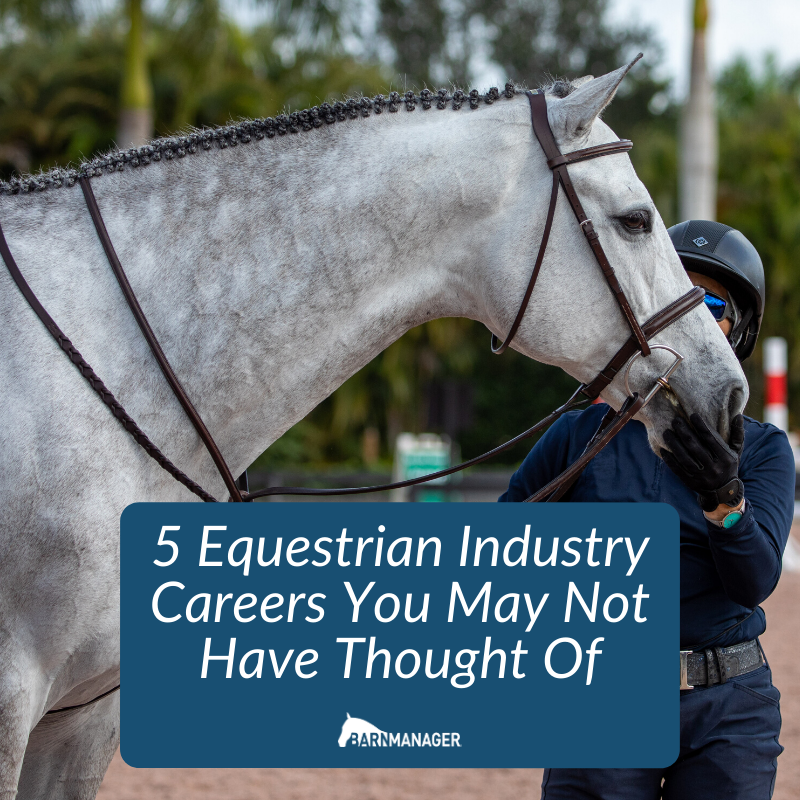 When you think of jobs within the equestrian industry, riders, trainers, and breeders may be among the first that come to mind, but they’re far from the only options. In fact, you don’t have to be a great rider, or even a particularly good rider, to have a highly successful career with horses.
When you think of jobs within the equestrian industry, riders, trainers, and breeders may be among the first that come to mind, but they’re far from the only options. In fact, you don’t have to be a great rider, or even a particularly good rider, to have a highly successful career with horses.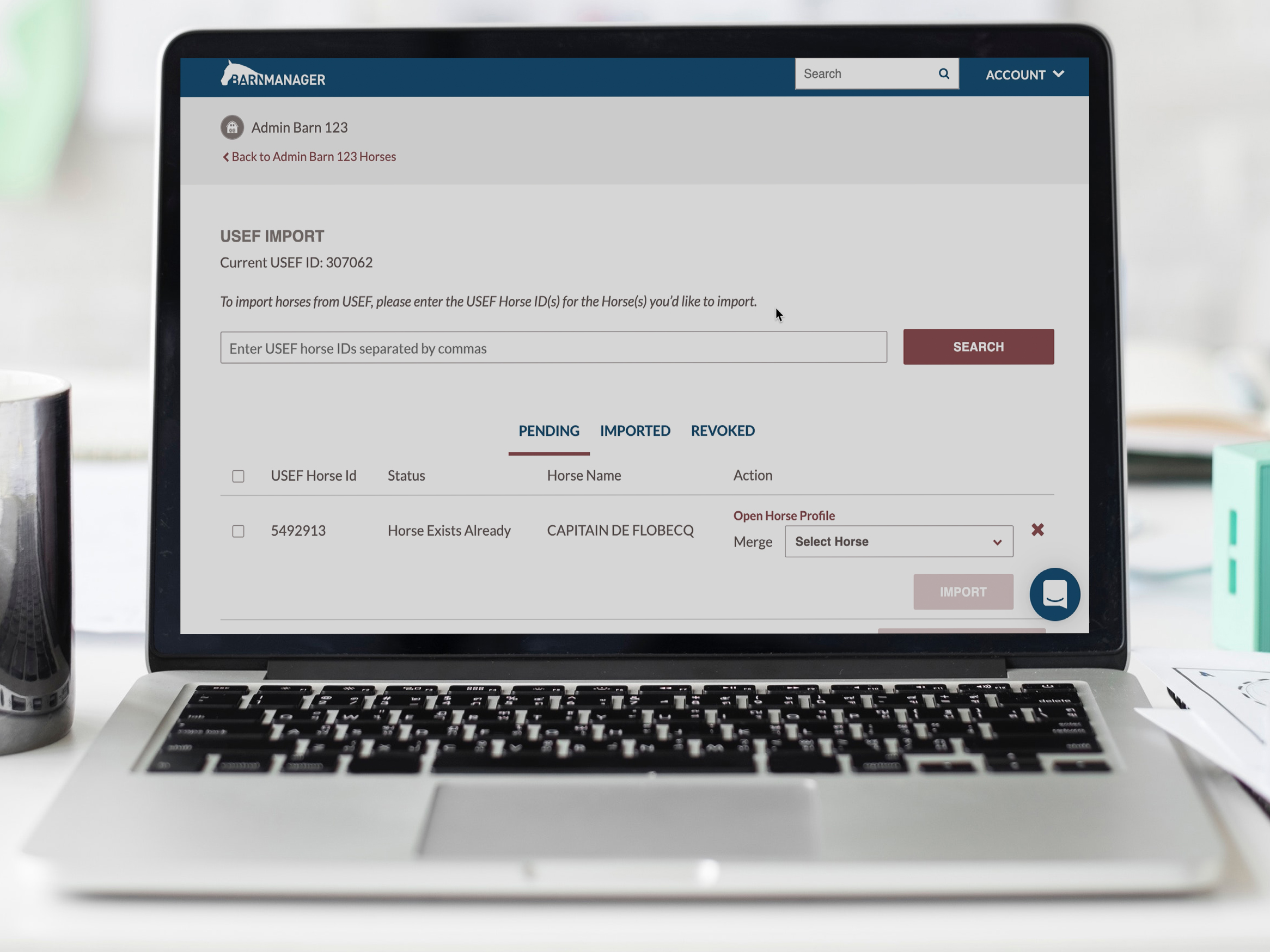 your love of technology, why not pair the two? Within the equestrian industry, there’s a need for software developers (for apps and software like BarnManager!), for web designers to create beautiful websites for barns, horse shows and brands, for audio and visual pros capable of producing live streams and webcasts, and much more.
your love of technology, why not pair the two? Within the equestrian industry, there’s a need for software developers (for apps and software like BarnManager!), for web designers to create beautiful websites for barns, horse shows and brands, for audio and visual pros capable of producing live streams and webcasts, and much more.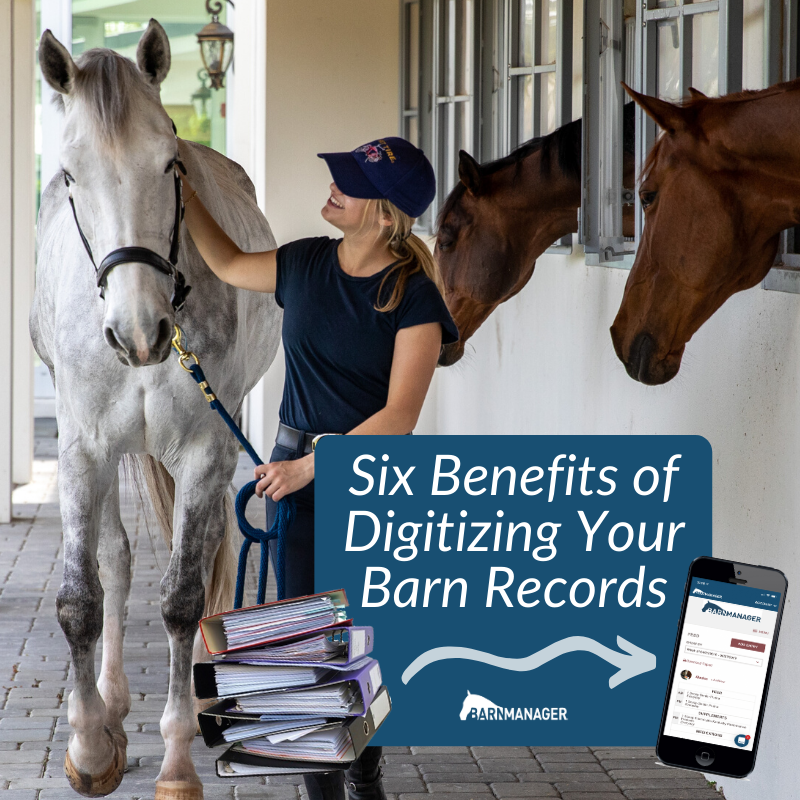
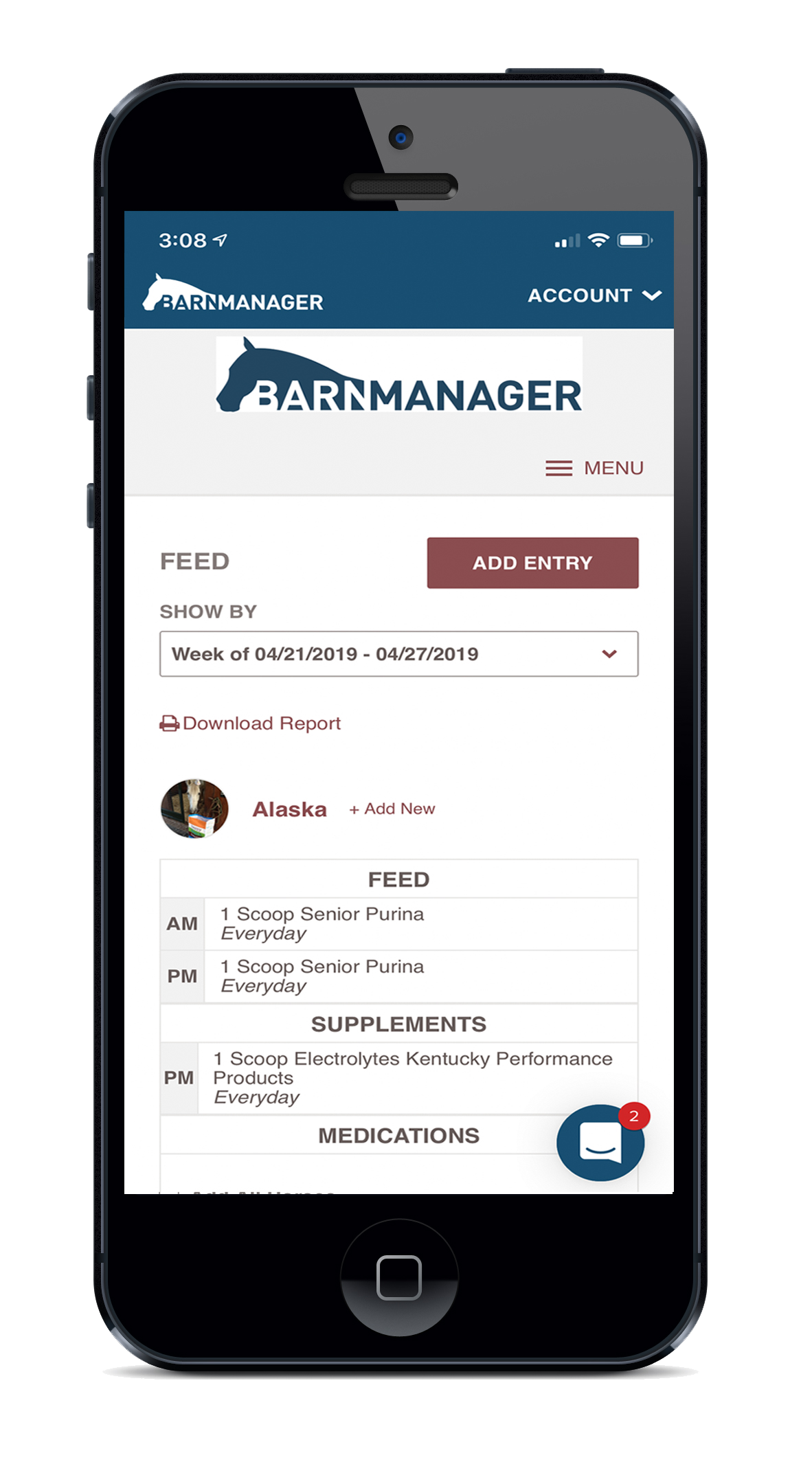 “At Spruce Meadows, I would be back at the barn trying to make grain and have a question for someone who was down at the International Ring, basically a mile away, and getting in touch was challenging. I was looking for ways to get around those communication issues and to get even more organized,” explained Nicole, who was working as a barn manager at the time.
“At Spruce Meadows, I would be back at the barn trying to make grain and have a question for someone who was down at the International Ring, basically a mile away, and getting in touch was challenging. I was looking for ways to get around those communication issues and to get even more organized,” explained Nicole, who was working as a barn manager at the time.